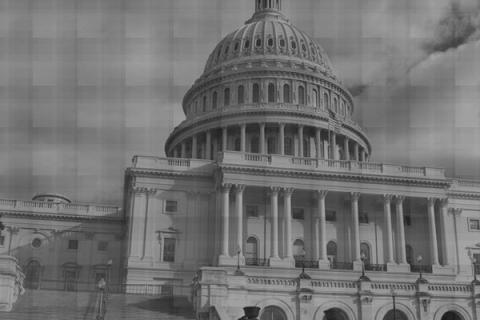
Senator Joseph Lieberman's long-time wish for more stringent internet regulations has been catapulted into the realm of legislative possibilities, as bipartisan support has advanced H.R. 3261 – the Stop Online Piracy Act (SOPA). The buzz around the reddit-sphere has it that big-name websites are contemplating a service blackout if legislation amounting to private sector censorship is approved. There are some big players in the emerging solidarity movement, but even with eroding corporate support caused by a social media-fueled public outcry, the pro-SOPA coalition remains a Goliath.
What SOPA would mean for the U.S. Justice Department and copyright holders is a new ability to “seek court orders against websites accused of enabling or facilitating copyright infringement” (Yeah, the vagueness of the bill is a large source of push-back against it). More pointedly targeted in the bill is the unauthorized streaming of copyrighted content. Any such act would be a “crime, with a maximum penalty of five years in prison for 10 pieces of music or movies within six months.” SOPA could target “an entire website even if only a small portion hosts or links to some infringing content.” Youtubers, this could change your internet experience overnight.
The proposed legislation has the potential, however, to do much more than just interfere with pastimes. Trevor Timm of the Electronic Frontier Foundation (EFF) has compiled “the people's” list of grievances:
The bill threatens to transform copyright law, pushing Internet intermediaries—from Facebook to your ISP—to censor whole swaths of the Internet. SOPA could forever alter social networks, stifle innovation and creativity, and destroy jobs, which is why Rep. Zoe Lofgren wasn’t exaggerating when she said SOPA 'would mean the end of the Internet as we know it.'
Civil libertarians are also worried about privacy invasion, which they say would be institutionalized by SOPA. The bill could also be used to undermine the work of human rights advocates and whistle blowers by taking away anonymous (and free) channels of information sharing, the EFF points out.
Supporters of SOPA include all major entertainment industry unions and trade groups including the Motion Picture Association of America (MPAA) and the Recording Industry Association of America (RIAA). Viacom and the other mega-media/publishing companies have thrown their weight behind the bill. Despite recent reports to the contrary, major players in the video game industry have not withdrawn their support of SOPA as the Entertainment Software Association (ESA) is still on board.
A bevy of trademarked companies like Nike and L'Oreal eagerly jumped on the SOPA bandwagon early on, but many have reconsidered their public position on the bill. The first high-profile company to reverse its stance on SOPA was domain name provider Go Daddy after a Wikipedia and reddit-led boycott of its services dealt a fiscal blow. It took approximately 37,000 former Go Daddy domain holders to transfer their business to Namecheap before Go Daddy caved.
A contingent of more "official" SOPA opposition does exist.
Silicon Valley reps have declared in an open letter to former Senator Chris Dodd that he, the new head of the Motion Picture Association of America (MPAA), was correct when he asserted that there isn't really a “Hollywood vs. Silicon Valley fight” in all of this. The letter urged Congress to drop all SOPA and PIPA related censorship ideas and open a dialogue about resolving any detrimental effects of electronic media piracy outside of Washington DC, so the “focus can be on getting something done, rather than another round of 'manufactured conflict.' ” In essence, tech and internet innovators have declared their position of strength if hostilities, so to speak, are initiated by lawmakers.
Google has proposed an alternative (some say more sensible) policy of going after the revenue sources of digital pirates instead of pushing what some believe to be de facto web censorship. For Ebay, Wikipedia, Facebook, Yahoo, Twitter and other well known sites, a “nuclear option” (aka simultaneous blackout) is on the table. Only time will tell if such drastic pushback is employed.
The House is scheduled to take up the SOPA debate January 24. The complete list of official SOPA supporters can be found here.
